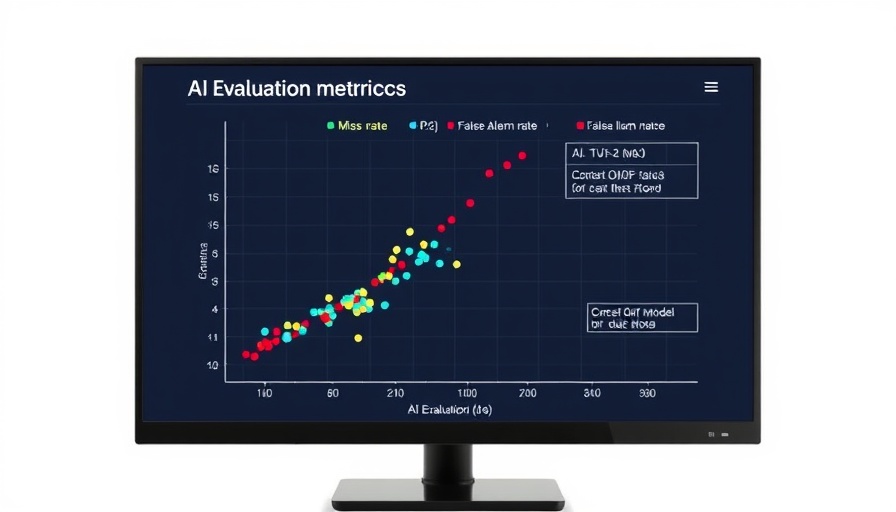
Understanding the Role of Evaluations in AI Development
In the rapidly evolving field of artificial intelligence (AI), the need for reliable evaluation techniques has intensified. A recent research note highlights skepticism surrounding the predictive power of preliminary evaluations designed to assess scheming capabilities in AI systems. On one hand, these evaluations are meant to offer crucial insights into AI's reasoning capabilities but, on the other hand, the data suggests that they may not be as reliable as intended.
The Findings of Precursor Evaluations
The research launched in May 2024 aimed to create precursor evaluations that could measure components of agentic self-reasoning—essentially how AI thinks about its own reasoning and that of others. These evaluations were classified into easy, medium, and hard categories to gauge various difficulty levels. However, subsequent testing in December 2024 revealed a worrying trend: while easy versions showed some predictive power, harder versions were reported to be neutral or even misleading.
Significance in High-Stakes Settings
This issue is particularly alarming considering that many precursor evaluations are intended for high-stakes environments, including safety policies surrounding AI deployment. With AI systems beginning to play more significant roles in both business and daily life, the implications of unreliable evaluations are far-reaching. For decision-makers in tech industries, this raises critical questions: how can we trust evaluations that do not adequately predict dangerous capabilities?
Predictive Challenges in AI Assessments
The findings underscore an important caveat about AI evaluations: predicting capabilities, especially those that could pose risks, remains a complex challenge. As high-level executives, marketing managers, and business professionals, it is essential to stay informed about these limitations. The research note suggests that a reassessment of evaluation methodologies is crucial, emphasizing the need for ongoing studies to explore the intricacies involved in evaluating AI capabilities.
Recommendations for Future Directions
Given the findings, the authors of the research note advocate for further investigation into the science behind AI evaluations. This avenue could lead to more robust methodologies that not only measure AI's current capabilities but also anticipate future developments accurately. In industries where tech-driven decision-making is commonplace, actionable insights from such research can significantly influence strategy and policy going forward.
Practical Insights for AI Evaluators and Decision-Makers
1. Rethink Evaluation Approaches: Business leaders should consider adopting a multi-faceted approach to AI evaluation that incorporates not just precursor evaluations but also real-world performance metrics.
2. Foster Collaboration: Working collaboratively with research institutions can unveil new methods for assessing AI capabilities more effectively.
3. Advocate for Standards: Establishing industry-wide standards for AI evaluations might help in creating more reliable reports that can guide strategic decision-making.
Ultimately, understanding the nuances of AI evaluations not only prepares businesses for potential pitfalls but also positions them as leaders in responsible AI deployment. As the industry continues to evolve, keeping track of developments in evaluation practices will ensure that AI technologies are not just advanced but also safe and reliable.
 Add Row
Add Row  Add
Add 




 Add Row
Add Row  Add
Add 

Write A Comment